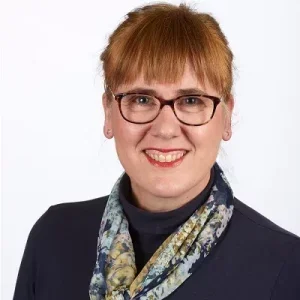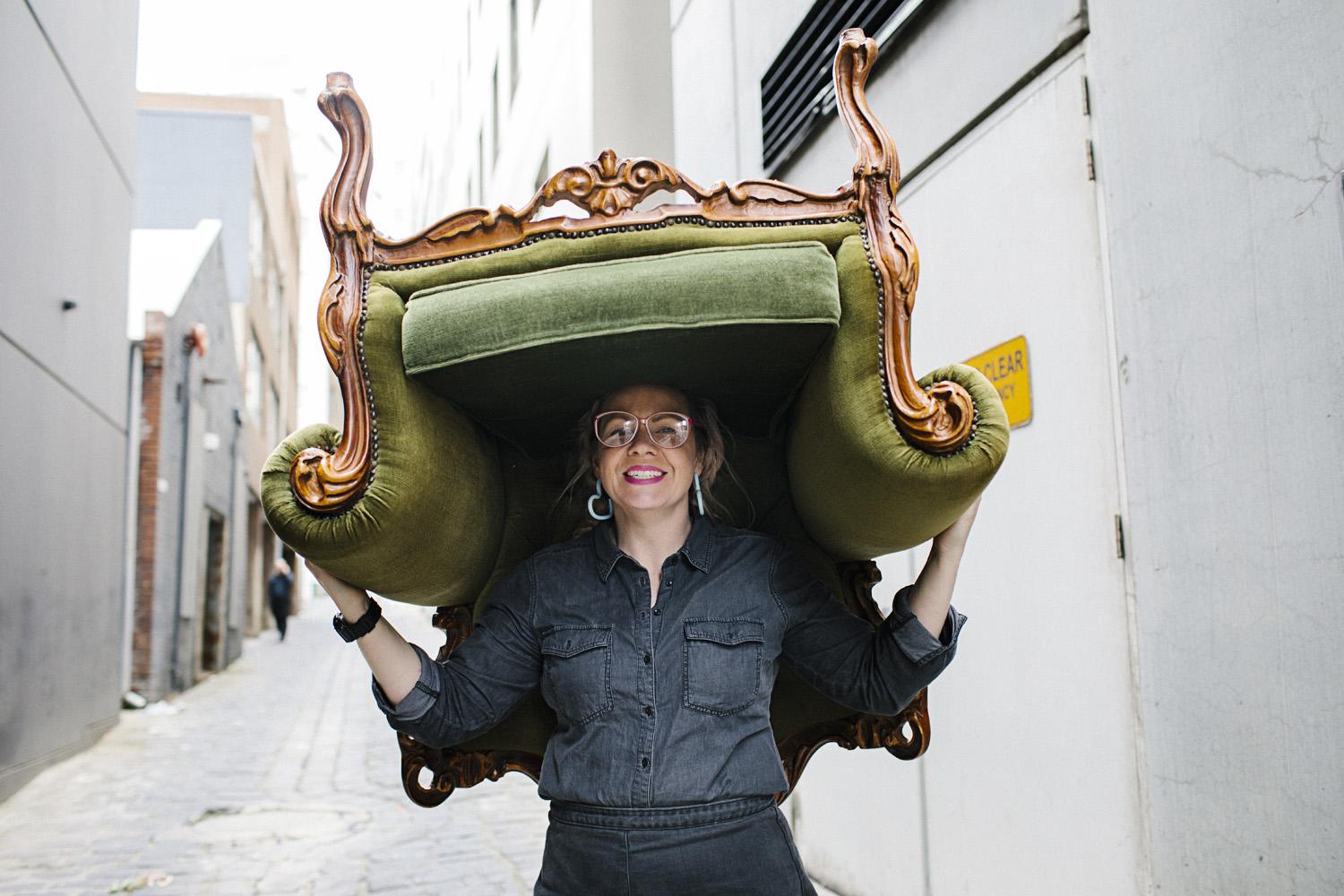Easy Jobs for Men in Their 40s
Changing careers into your 40s and 50s is a real challenge. Still, there are plenty of financially secure, low-stress, and fulfilling career options for midlife career changers . Discover new career ideas that fit your needs, whether you want to step it up or dial it down.
Realising you aren't happy in your current job — or that you no longer have a clear direction — can be scary. As an older career changer , you may feel like you don't have as much time to work your way up a new career ladder as a younger person would.
On top of that, ageism can lead to resistance and even discrimination from potential employers when you enter the job market . All this means that starting a new career can be one of your life's most challenging and emotionally draining tasks.
The challenge becomes even more complicated if you aren't sure exactly what you want to do.
Why over 40s and 50s tend to want a career change
Leah Lambart, career coach and founder of Relaunch Me , says that the desire to change careers is often motivated by the desire to do more personally meaningful work.

"Our values change as we age, so often individuals who have been in a corporate role get to a point in their life where a high income and status no longer motivates them. "
"Instead, they want to do personally meaningful work which may include:
- A desire to help people and make a difference in society – i.e. a move into community services, healthcare, counselling or teaching may fulfil this need.
- A desire to do more creative work – there are often many creatives stuck in roles that don't allow them to use their imagination and big picture thinking.
- A desire to have more work-life balance and to spend more quality time with family and friends – perhaps changing from corporate to running their own business or working as a consultant will often allow people more flexibility and independence."
Career change ideas at 40, 50 and 60+
One of the best places to start when imaging your next career move is to think about what work you're suited to. This could mean thinking about your life purpose, making a list of things about your current career that isn't working for you, as well as a list of things that are working and you'd like more of.
Goal-setting may be helpful. What would your dream job involve?
- Are you looking for a position that's more challenging and stimulating?
- One that will allow you to progress on the gains you've already made?
- Or are you burnt out and looking for a lower-stress career for the coming decades?
- Is your current career not financially rewarding enough?
- Or is the money okay but doesn't allow you to make an impact?
There's a range of options to suit all these scenarios. Some involve building on your existing career, interests, skill set , and experience. Others may include retraining and upskilling – which those in their 40s and 50s are increasingly ready to do . Remember that you may have more knowledge and transferable skills than you think.
Careers for people who want a bigger challenge
Idea 1: Self-employment
Many people who are unsatisfied with their working life are looking for more of a challenge. Self-employment is an opportunity to take your own life and career into your own hands. Australian government data shows that entrepreneurial activity is higher among older people . This trend is likely because over 40s have had their entire lives accrue expertise and experience in various areas.
Self-employment can take many forms: from opening your own company or startup to consulting, coaching, or freelancing work as a sole trader.
Some of the most common industries for self-employment include:
- Agriculture
- Construction
- Professional and administrative services
- Real estate
- The arts
There's a vast range of niches for successful people.
Self-employment can be challenging. It involves a lot of things:
- Taking calculated risks
- Getting out of your comfort zone
- Working hard
- Knowing the ins and outs of your industry
- Learning how to run a business
A small business course can help you avoid common pitfalls faced by beginners and build a sustainable business from day one. The payoff is the freedom to design your own path.

Don't Want to Retire? Why You Should Start a Business in Your 60s
It's not too late. Your 60s might be the best possible time to start a business — here's why.
Read More
Low-stress careers for people who are burnt out
Are you burnt out by the 9-to-5? Or 9-to-late? Burnout can make you feel like you're in a rut, making it hard to get motivated and leading to procrastination. Over time, burnout is associated with mental health issues. There are many opportunities to change into something more fun , or slower-paced, allowing you to lead a better life.
Idea 2: An outdoorsy career
One idea is to try taking your work-life outdoors.
- Jobs in tourism – such as outdoor activity guide (like teaching people to rock climb or scuba dive) or tour guide – allow you to show off the natural world to people on a life-changing holiday.
- Jobs in gardening and landscaping — Got a green thumb? These jobs will allow you to enhance the beauty of outdoor environments. Park rangers also work in breathtaking settings, helping to conserve Australia's unique plants and animals, parks, and waterways, often interacting with interested visitors.
Idea 3: A career with work/life balance
Another idea is to work in sectors that allow you to leave work at work and enjoy your leisure and family time. These jobs may be amenable to part-time or casual employment or flexible work arrangements such as working from home, allowing workers to take control of their daily lives. Many administrative, bookkeeping , IT, and technical roles don't tend to bleed into personal time. General positions in community organisations require time-limited, low-stress commitment with the bonus of being able to help out the community in direct, tangible ways. These include:
- Schools
- Zoos
- Libraries
- Museums
- Sports clubs
- You could take on roles such as:
- Crossing guard
- Book shelver
- Visitor information guide
- Coach
- Exam supervisor
Financially secure careers for people who want stability
Idea 4: Financially secure employment
After decades of work, you may feel you need a career that will offer solid employment opportunities, enough money, and good superannuation and benefits. There is a range of options for financially secure jobs.
Some roles include:
- IT
- Trades
- Consulting
- Executive assistant
- Financial advisor
Both IT and trades offer secure jobs with good salaries . The idea of retraining in either of those industries may be overwhelming, but it is possible.
- Trades: Mature apprenticeships are available to older people looking for experience in trades like construction, plumbing, electrical, and hairdressing. While it takes a few years to start to earn significantly above the minimum wage, these are skill shortage areas where life experience is looked upon favourably.
- Technology: IT is one of Australia's fastest-growing industries, with average incomes above $80k. A wide range of companies worldwide employs people with tech skills. There is a range of courses available for upskilling too.
- Consulting: Other potentially secure and lucrative careers include consulting (using the knowledge you've gained in your career to give business advice). Various roles exist in the local/state/federal public service.
- Executive Assistant: Executive Assistant roles are well-paid and secure for people who've amassed excellent organisational, communication, and business skills over their careers. If you're good with numbers and across the investment world, you could train as a financial advisor to advise people on growing their wealth.

Mature Age Apprenticeships: Are They Worth It?
Everything you need to know before beginning a mature age apprenticeship.
Read More
Careers for people who want fulfilment
It's common for people to have thrived in competitive industries only to wonder: how does this help the world? There are many dream jobs to help you leave a positive impact.
Idea 5: Work for a non-profit
The non-profit sector needs people from various industries – communications, marketing, accounting, finance, IT, strategists, and people who can raise money and awareness. Moving to the non-profit sector could be as simple as doing a similar job to what you're doing now, but for an organisation and a cause you believe in.
Idea 6: Turn your creative hobby into a career
Maybe you've been an avid photographer, illustrator, or basket-weaver in your spare time. Perhaps you love writing or playing video games. One way to get greater fulfilment is to parlay those creative expression skills into a dream job . A range of creative roles are in high demand, pay well, and can form a full-time career . You can also sell items on websites such as Etsy or markets as a side-hustle , potentially turning into a full-time gig.
Idea 7: Teaching
Teachers give back by helping others learn essential skills. You can teach what you've already learned over your career life in TAFE or adult training environments or train to teach a subject you love to secondary students. There's also a huge demand for early childhood educators . These individuals play a formative role in children's development and reap the satisfaction of encouraging children as they learn and grow.
Idea 8: Politics
Perhaps you have strong beliefs about how to improve the lives of those in your local area, state, or Australia-wide. In that case, you could enact significant changes through involvement in political life. Just as the non-profit sector needs a wide range of professionals, so do political parties and organisations. You could also work directly as a politician's staff member, helping them manage constituents' feedback and get key messages across. This might also include managing their day-to-day life: from committee involvement, public event attendance, social media engagement, and media comments.
Dream jobs for people who want career progression
Idea 9: Office jobs with opportunities to climb the career ladder
Maybe you're getting to a stage where you'd like more responsibilities, higher pay, and a key role in mentoring and managing others. In that case, you can make this progression relatively directly in a range of professions.
- Business analysts translate between technical teams and business teams. They understand what IT professionals are saying and doing. They can communicate that to less-techy arms of the business so that both can collaborate productively. The position is a good starting point for a sequence of promotions to roles such as project manager and other management jobs in IT and business.
- Financial analysts assess businesses by analysing financial and performance data. They may produce financial plans and analytical reports, and projections. As you gain seniority, there are pathways in various managerial roles, even executive roles like CFO. Although, at these levels, you may be expected to get further business qualifications while you work, such as an MBA .
- Office managers are responsible for efficiently operating administrative tasks in an office . They're involved in hiring and training admin staff, keeping detailed records, and managing the office budget . The office manager is an excellent role for people with existing admin experience and something to work towards if you're new to administration. From there, office managers can progress into senior managerial positions, human resources, or executive roles such as COO.

Amanda's Career Change at 50+
"I suppose my attitude to life is, 'Why shouldn't I have my cake and eat it too.'"
Read More
How to change careers in your 40s, 50s and 60s
Switching careers at any age isn't easy, and starting over at 50 can feel especially daunting. But with the right mindset, preparation and planning, you'll be in a strong position to make your move. Here are some tips for making a successful career change later in life.
Switching careers at any age isn't easy, and starting over at 50 can feel especially daunting. But with the right mindset, preparation and planning, you'll be in a strong position to make your move. Here are some tips for making a successful career change later in life.
1. Create a money cushion
When you switch careers , you can't always jump to the same level of seniority on your new track. Sometimes it means starting in an entry-level position and taking a pay cut — which can be tough to adjust to if you've grown used to a certain level of financial security. That's why it's a good idea to build up a savings account with an extra cash cushion to soften your landing.

How to Finance a Career Change Later in Life: Tips From a Finance Expert
"If you're waiting for a "perfect" time to change – that may never come. You don't have to do it right – you just have to do it!"
Read More
2. Take stock of your skillset
By this time, you have a wealth of knowledge and transferable skills to offer in a new career . Your previous experience in past or current careers is a clear place to start. It can help to write a list of your strongest skills, both technical and general.
Don't stress if your work experience is limited. For instance, if you're returning to the workforce after a break, you might have valuable life experiences to draw on, like caring for family, running a household, or volunteering. All these experiences give you transferable skills that enable you to get up to speed in a new role , even while you're just starting to build job-specific skills. These include:
- Communication skills
- Interpersonal skills
- Organisation and time management skills
- Problem-solving skills
- Leadership skills
- Critical thinking skills
Next, you can start looking at where you'd like to be. Collect a few job advertisements for roles you're interested in, and take note of the ideal candidate they're describing. What does this person have in terms of:
- Work experience
- Skills
- Knowledge
Now compare your list of skills and experience with the ideal candidate, and ask:
- Where do you match up? These are the skills you can highlight in your application and job interviews.
- Where are there gaps? This can be a guide to skills you can work on developing.
Now you can build a bridge between where you are and where you want to be. You might decide you need to retrain or upskill before you continue your job search . Luckily, gaining skills is easier than ever, with plenty of flexible online and blended study options. To find a course that fits your life, start exploring by tapping one of the following options.
3. Reframe ageism
Ageism in the workplace is illegal but, unfortunately, still a fact of life. While this can be discouraging, you don't just have to accept it — there are things you can do. One of your most powerful moves is to take control of the narrative.
Sure, you can paint age as a liability. People might assume you won't adapt well to technological change or that you're not open to learning new things. But this is just an assumption. You can tell them a different story, one that you know to be more truthful.
Age can be an incredible asset. Your life experiences have given you the skills to handle various situations with a grace younger people can only envy. The changes you've lived through in your industry and in life give you a bigger picture understanding and the long-range perspective to make sound decisions.
If you can explain that you've given your career move careful consideration and that you're in it for the long game, this can paint you in a better light than someone who hasn't — digital native or not.
How to adopt the right mindset for a midlife career change
Career development practitioner Sue Ellson is herself over 50. She works closely with people to discover what they truly want from their working lives.

"I think the key issue here is working out where your mindset is."
"Certainly, at this age, you have a lot of experience and technically, you need to be 'paid' what you are worth. But not every business can afford you full time.
If you say that 'young people get all the jobs' do you want to go back to working full time for $20 an hour?
I think it is important to really understand how and where you can add value (or passion or purpose) and then use networking, referrals and voluntary work to secure an opportunity that is aligned (and hopefully close to home and possibly for fewer hours per week as you find the sweet spot of work/life balance).
For example, working two days a week at a higher rate is better than five days a week at a lower rate (if it is for a job).
For me, I need a lot more autonomy, flexibility and variety — so I have chosen self-employment, without the 'headaches' of staff, premises, responsibilities etc, but I keep learning so that I can use technology to attract aligned gigs and do the gigs efficiently."

Getting Around Ageism On Your Career Journey
If you're ready to embark on your career change , these tips will help you avoid ageism on your job hunt .
Read More
Career change later in life — 3 stories that will inspire you
Dianne Doyle — Qualified Nutritionist (BHSc Nutritional Medicine)

Before her career change to Nutrition, Dianne worked within the Allied Health industry on and off for about 20 years; making the switch to nutrition from aromatherapy about 5 years ago.
Dianne always felt super passionate about food, and finally decided to take the plunge and turn this passion into a career once both of her children moved out of home and the pressures of running a family household and working in a full-time capacity eased a little.
Although the transition from being a full-time professional to be a full-time student was a bit of a shock to the system at first, as she hadn't had the responsibility of the self-paced lifestyle and staying on top of content-heavy coursework for nearly 20 years, Dianne pushed through:
"I found that newer, more flexible ways of studying and online resources really supported my development and allowed me to keep pace with more tech-savvy students. I had basic MS Office Skills but rarely had to use much more than that before my switch, so that was a steep learning curve for me!"
After graduating 18 months ago, Dianne now has a client base that she sees in a clinical sense atGuidelight Psychology and Wellness in her consulting office. She also runs her own family-based nutrition consultancy,Food Prescription, where she teaches families and people who suffer from food allergies how to prepare inclusive meals for food intolerances.
"Being a Nutritionist has opened so many doors for me… Honestly, I really wish I'd made the transition sooner!"
Ted Richards — Director of Business Development at Six Park

In his previous life, Ted was an AFL footballer for 16 years with the Essendon Bombers and the Sydney Swans, making plenty of memories and life-long friends along the way.
After retiring from football two years ago, Ted moved into investment management. Although he's always loved football, Ted discovered that he has other passions too, and investing is one of them.
"Football will always be a passion of mine, but the idea of a new challenge excited me too. Don't get me wrong, it also scared me as, to a certain extent, I was in my comfort zone with football. But I certainly had interests outside of football that I wanted to pursue."
The average career span of a footballer is only around five years. Ted always knew that the statistics suggested that he should prepare for a new job if things didn't work out. Whilst playing football, he went to university and completed a Bachelor of Commerce and a Masters of Applied Finance. He also did work experience during the last four years of his career.
"This gave me great vindication that investing was the next career path for me. I prepared the best I could, but I'd be lying if I said I wasn't nervous about entering a new industry too."
The journey was a little bumpy. "I failed a few subjects, so it's not like it was easy or I was perfect. I had to make sacrifices and miss out on exciting events, which wasn't fun either. But I kept chipping away, and I think that's what I'm most proud of. I didn't give up."
Ted is now the Director of Business Development at Six Park – an organisation that provides investment advice online, otherwise known as 'robo-advice'. He prides his career and business on transparency in how it invests for its clients.
Kate Forsyth — Creative Director/Co-founder of Good Day Rentals

Kate was a corporate communications manager at ANZ, most recently working in banking until she left in 2015 at the age of 35.
She had always wanted to start her own business, and thought that her career would be as a communications consultant, however, she was lacking one important thing: passion.
When planning her own wedding in 2013, Kate decided that she wanted to hire vintage furniture but couldn't find anyone in Victoria that offered this specific service.
This gap in the market prompted Kate to begin her vintage-hire business 'Good Day Rentals', with her now-husband Dave.
Kate and Dave now have a warehouse in Sunshine West, with a part time studio assistant, and a pool of casual and contract staff who help. Kate is now a full time event designer and stylist and spends almost all her time seeing clients and working on designs as well as managing her marketing and business development.
"Our designs are quite unique, cutting edge and part of a real change in weddings particularly where people are doing what they want rather than cookie cutter, same same traditional stuff. So it's exciting to be part of and to influence with our work."
Dave is now the General Manager and has also taught himself to be a craftsman. He makes a lot of furniture and props that are used for event designs and in the Good Day Rentals giant hire collection.
"It's safe to say we have both had massive career changes – it's quite weird to see how different our lives are now to what they were when we met and both worked at ANZ for a time, with our romance kicking off via ANZ's internal chat tool!"

Making a Career Change as an Older Adult: The Complete Guide
Want to learn more about starting your career change ? Discover what it's like to be a mature-age student, how to pick a career path , and learn to write career change cover letters . Find all the career advice you need in this comprehensive guide.
Read The Guide
Source: https://www.training.com.au/ed/jobs-for-career-changers-over-50/
0 Response to "Easy Jobs for Men in Their 40s"
Post a Comment